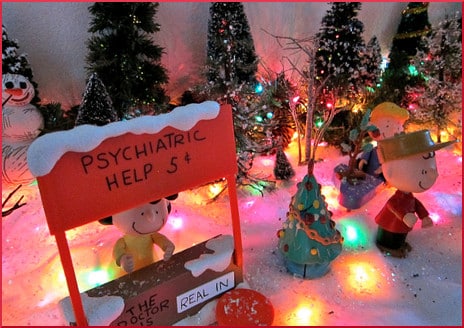Since the long-awaited publication of the 5th version of the Diagnostic and Statistical Manual of Mental Disorders, or DSM-5, the dust has settled and many authorities have had a chance to weigh in and speak their minds. British psychology professor Graham Davey, for instance, notes several problems.
Among these is the fact that psychological/mental health problems are seen as dimensional, so the arbitrary establishment of a diagnostic cut-off point must necessarily be sketchy. Davey writes:
DSM-5 has attempted to recognize the importance of the dimensionality of symptoms by introducing dimensional severity rating scales for individual disorders. But… each iteration change in DSM diagnostic criteria changes the number and range of people who will receive a diagnosis, and this makes it increasingly hard to accept diagnostic categories as valid constructs.
Childhood Obesity News, naturally, takes a keen interest in the medical establishment’s view of food addiction, a frequent bone of contention both linguistically and conceptually. Back in the old days of DSM-IV, the terms “substance abuse” and “substance dependence” appeared in its pages. They have since been abandoned for the inclusive term “substance use disorder,” or SUD, which is further divided into three degrees of severity – mild, moderate, and severe.
The RogersHospital website explains that in many social circles, “abuse” is a stigmatizing label. If SUD is a real and significant health problem, then sufficient vocabulary, more professional and less judgmental, can be found to describe it. Also, the word “dependence” is no longer used because it was often applied inappropriately:
… “dependence” could be confusing to some clinicians and patients since the term is used medically to describe the body’s adaptation to a consumed substance.
They are saying that dependence is a normal body response. We all depend on Vitamin C to keep us from contracting scurvy, and some people depend on daily injections of insulin to keep them alive.
Mental problems that manifest as feeding and eating problems have always been difficult for the DSM compilers to deal with. The previous edition included anorexia nervosa, bulimia nervosa, and a slew of aberrant behaviors that got shoved into the category of EDNOS, or “eating disorder not otherwise specified.” Clinical psychologist Jennifer J. Thomas says:
Unfortunately, the pervasive myth that EDNOS was somehow less severe than anorexia or bulimia sometimes prevented people who fit into this category from seeking help, or insurance companies from covering costs.
DSM-5 shook up the organizational chart, kicked out EDNOS, and established OSFED, or “Other Specified Feeding or Eating Disorder,” a category with five members and some contenders:
- Atypical Anorexia Nervosa (i.e., anorexic features without low weight)
- Bulimia Nervosa (of low frequency and/or limited duration)
- Binge Eating Disorder (of low frequency and/or limited duration)
- Purging Disorder
- Night Eating Syndrome
DSM-5 also includes a category called Unspecified Feeding or Eating Disorder (UFED) that is reserved for folks who don’t fit into any of these five categories, or for whom there is not enough information to make a specific OSFED diagnosis.
.
Binge Eating Disorder, with higher frequency and duration, but without purging, was awarded its very own category.
Your responses and feedback are welcome!
Source: “Changes in DSM-5,” Blogspot.com, 02/13/13
Source: “DSM-5 Now Categorizes Substance Use Disorders in a Single Continuum,”
RogersHospital.org, 02/24/14
Source: “Goodbye EDNOS, Hello OSFED,” JenniSchaefer.com, 08/21/13
Image by Kevin Dooley


 FAQs and Media Requests:
FAQs and Media Requests: 











